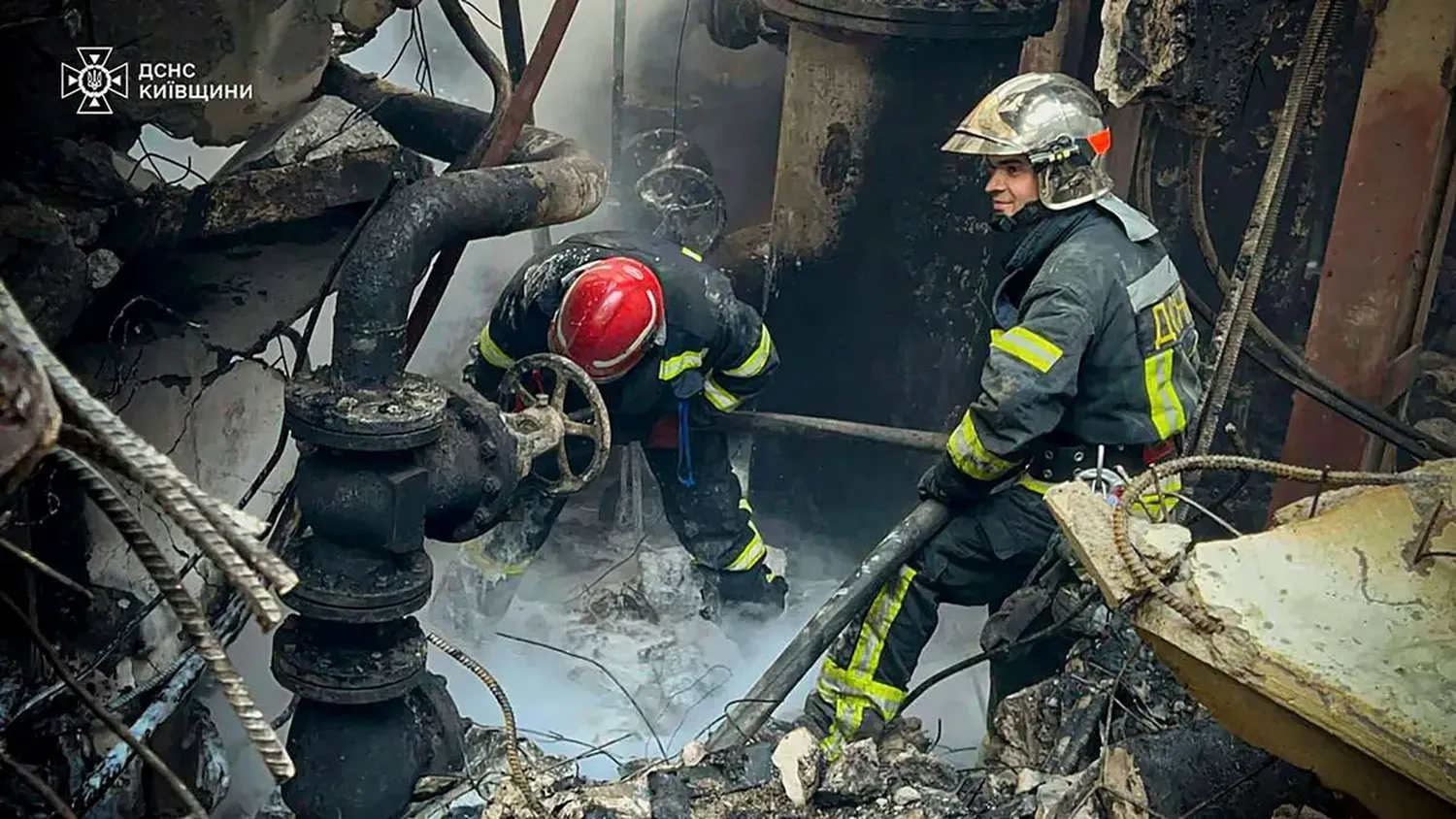Russia-Ukraine War
Russia destroys one of Ukraine's largest power plants
Russian forces have launched a massive aerial assault on Ukraine's energy infrastructure, resulting in the destruction of one of the country's largest power plants and causing extensive damage to several others. The attack, which has been described as "terrifying" by local officials, marks a grave new chapter in the ongoing conflict, with critical civilian infrastructure being targeted.
The Trypilska coal-powered thermal power plant, a major supplier for the Kyiv, Cherkasy, and Zhytomyr regions, was completely destroyed in the onslaught. Footage shared on social media depicted a fire raging at the facility, with thick plumes of black smoke billowing into the sky. The attack has been condemned by Ukrainian President Volodymyr Zelenskyy as an act of "terror," with the president urging for increased air defense and other defense support from Western allies.
Kyiv has been appealing for urgent air defense supplies due to the renewed long-range aerial assaults on the Ukrainian energy system. The attacks have not only damaged substations and power generating facilities in multiple regions, including Odesa, Kharkiv, Zaporizhzhia, Lviv, and Kyiv, but have also struck two underground storage facilities where Ukraine stores natural gas, some of which are owned by foreign companies. Despite the attacks, the facilities continue to operate.
The region of Kharkiv, which borders Russia and has already been experiencing long, rolling blackouts, was forced to cut electricity for 200,000 people. Ukraine has warned that it could run out of air defense munitions if Russia continues the intensity of its strikes. In a move to support its fatigued troops, the Ukrainian parliament passed a bill to overhaul army mobilization rules, which awaits President Zelenskyy's signature to become law.
The destruction of the Trypilska plant is a significant blow to Ukraine's energy capabilities. The plant was a critical part of the country's energy grid, and its loss will likely exacerbate the already challenging situation for millions of Ukrainians facing power outages and energy shortages.
In addition to the Trypilska plant, Ukraine's largest private electricity company, DTEK, reported that two of its power stations were hit, inflicting serious damage. The attacks have also targeted other critical infrastructure, including two underground storage facilities where Ukraine stores natural gas.
The humanitarian impact of these attacks is profound. Hundreds of thousands of people across Ukraine have been left without electricity, and damage to the Dnipro Hydroelectric Power Plant and other attacks in Zaporizhzhia have limited water supply in several regions. Strikes have also resulted in civilian casualties, with aid workers on site assessing the damage and mobilizing emergency support.
The Ukrainian air force has been actively defending against the aerial attacks, claiming to have shot down a significant number of drones and cruise missiles launched by Russia. However, the scale of the attacks and the damage inflicted suggest that Ukraine is facing an uphill battle in protecting its critical infrastructure.
The international community has reacted with concern to the escalation. European Union officials have raised alarms about nuclear safety in Ukraine following the widespread Russian missile attacks on the nation's energy infrastructure. The Zaporizhzhia nuclear power plant, one of the largest in the country, lost its connection to the power grid for several hours due to the attacks, highlighting the potential risks to nuclear safety.
The attacks on Ukraine's energy infrastructure are seen as a strategic move by Russia to weaken the country's resolve and ability to sustain its defense efforts. The targeting of civilian infrastructure is a violation of international law, and such actions have been widely condemned by the international community.
As the conflict continues, the resilience of Ukraine's energy system and the sector workforce is being tested like never before. The country's ability to withstand these attacks and maintain a functioning energy grid is critical not only for its military defense but also for the well-being of its civilian population. The international community's response to these developments will be closely watched, as calls for increased support and defense aid to Ukraine grow louder.

